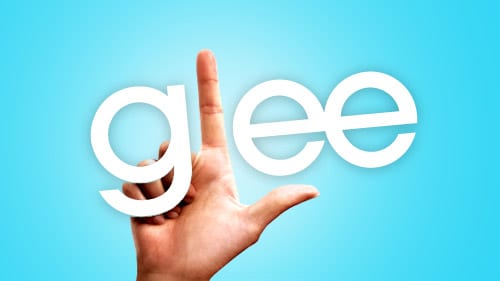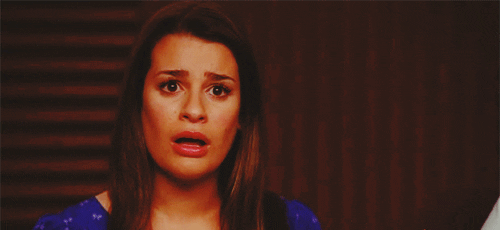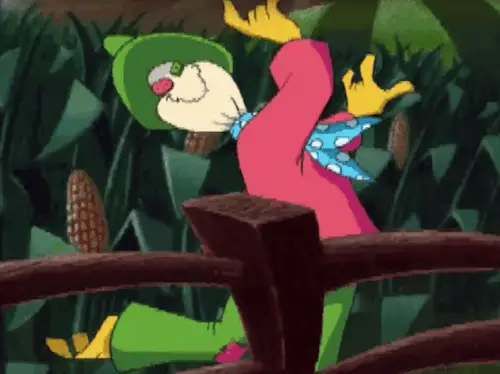Let’s be blunt: last year sucked. It sucked so hard I had to do some serious re-calibration of my zero-to-ten scale of how much things suck. In addition to all of the things that happened in the Big World, I had some very bad things happen in my personal life that amplified that feeling of depression and despair at the state of the union, so to speak. But 2016 is now mercifully over, and there’s nothing really to do but start moving forward. In the process of deciding exactly how to do that, I thought maybe a good place to start would be to look back to things that used to bring me happiness. And what better place to start than my first true fandom?

Once upon a time when I was a bit younger but about as gay, I started reading the Glee recaps on Afterellen. I didn’t jump onto the Glee train until well into season 3, mostly because of Brittana but also because Tumblr had dragged me headfirst into the non-canon shipping hell that was Faberry. This was a… frustrating time to be a lesbian who wanted to watch and enjoy television, so Heather Hogan’s and Dana Piccoli’s recaps gave me life in all their snarky, judgemental, and sarcastic glory. I had been up the arsehole of academic interpretation for quite a while for traditionally academic pursuits, but until I read those recaps, it never really occurred to me that you could do the same thing with media. In addition to that, those recaps gave me validation for the frustration I felt while watching the show: I knew, for once, I wasn’t crazy for questioning the things the TV claimed to be handing me on a silver-plated platter.
That being said, the recaps gave me the ability to follow the show without actually watching it once things *really* started not going my way. There is an indescribable cathartic joy that comes from being able to rage-read about a show that isn’t going your way. It’s righteous and affirming, validating in a way that is hard to articulate. The same impulse eventually brought me to The Fandomentals, rage-reading articles about The 100 after the events of 3.07. I actually clung to watching the show a bit longer after that, more or less just to have something obnoxiously detailed to contribute to the comments section. Those obnoxiously self-indulgent comments led to me co-writing the The 100 retrospectives, then to co-writing the articles for Supergirl, then to recording the Ladies First podcasts with my co-hosts Gretchen and Kori, and now almost one year later I’m one of the managing editors for the very site I used to simply comment on.
It’s surreal to think about, how something so horrible could lead to something so amazing. But taking on a new role comes with new responsibilities, and one of those responsibilities is being informed about the things I elegantly bitch about. I proudly watch Supergirl each week with Gretchen and write the recaps, but to be honest it’s not all that difficult to watch and write about something you love. It takes a higher level of determination and devotion to the craft to write about things you don’t like, things you hate, or things that are just mediocre enough that it becomes incredibly difficult to have an opinion on them.
As just a commenter, it’s quite easy to sit atop Mount Moral High Ground, lounging on my armchair of confirmation bias, but with a managing editor position comes great responsibility. I must now have more accountability for my opinions, so I’ve been thinking that perhaps it’s time to ensure my opinions are grounded in personal experience rather than just parroting the confirmation bias that’s so soothing to the soul. So I started watching Glee. From the beginning this time. Pull up a chair, kids, because you’re not gonna hear me say this often. I’m pretty sure I shave ten years off my life every time I do.
I was wrong.

About a lot of it. Not all of it, but enough that I’m willing to punch myself in the metaphorical balls ego a few times over it. For the sake of preserving my ego for just a little bit longer, I’m not really going to go into detail about specific things I was wrong about. I’ll get into that in my upcoming Glee retrospective series, which will be spread out over the next few weeks leading up to Clexacon. For now, I just want to talk a bit about the most important lesson I’ve learned thus far in this rewatch adventure: the importance of context. More specifically, the importance of having all of the context, or as much of it as possible.
I feel like this really shouldn’t be a revolutionary statement. If you are going to analyze and interpret something, you need to have actually, you know, consumed it to do so well. Anyone in a research-based discipline, or really anyone who has ever written a literature review in college, knows that you can sorta get away with cherry-picking information from your essay sources and still form a coherent, thoughtful argument. The thing is, television isn’t like skimming peer-reviewed journals; academic sources lay out the most important details for you on a silver platter in the beginning and closing sections of the article. Print books have indexes at worst, and eBooks have control-F at best. But with television, the visual presentation, context, and pacing of a scene is almost always as important as the scene itself. You can’t cherry-pick when interpreting television, because it will take a person no longer than 51 minutes to definitively prove you wrong (that is, the length of time it takes to watch the episode in context).
“But wait,” says Mr. Strawman, who is a very good friend of mine and loves to help me write my articles. “Are you saying that people should have to watch problematic or bothersome content in order to have an opinion on it?”

Why no, Mr. Strawman, that is not what I’m saying. But what I am saying is that you do need to watch problematic and bothersome content if you are going to be writing professional or even semi-professional articles about it. Let me be clear that I am not advocating for people to watch triggering or damaging content arbitrarily, or in the pursuit of academic accuracy for its own sake. If you cannot handle the violence on The 100 or Game of Thrones, then by G-d please do not force yourself to watch it and experience that discomfort. You need to do what’s best for you, and what will protect you from harm. However, if you full-stop cannot handle the content of a particular piece of media, then it is probably wise to choose a different piece of media to write professionally about. There is no shame in being uncomfortable or hurt by something problematic. But you also cannot write about that content with a voice of full authority if you have not seen it yourself.
That being said, this is not a cut-and-dried, all-or-nothing scenario. Sometimes shows drag you neck-first down Grimdark Alley unexpectedly, and blindside you with content that is in no way tonally consistent with the previous seasons of the show. Sometimes we go from maybe three major character deaths per a season tops, to a half-season tribute to House Bolton via literal crucifixion and torture of the main characters. It is not your fault if you have to tap out of these shows, even as a professional writer, because that is not what you signed up for. But you have to be careful about continuing to write about the show, because you are inevitably going to start talking out your arsehole about something. Once you are no longer watching the show, you are no longer a truly informed source on the new content.
And if we’re being honest, that’s okay… as long as you are really upfront about it.
This leads me to the second reason I am currently clamoring up onto this soapbox: the tremendous influx of articles I’ve been seeing lately, especially about queer content, that are scathingly critical but written from the perspective of someone who does not actually watch the show or someone who only watched the episodes with the LGBT+ moments. And, most importantly: the person does not disclose this detail until very near the end of the article, or even sometimes only in the comments section.
My fellow writers, this is unacceptable. And I think ya’ll know it’s unacceptable. Actually, I do know that you know it’s unacceptable, because you bury this admission ten paragraphs down and try to phrase it like a ‘bee-tee-dubs no biggie’ offhand statement. You know that if you came right out at the top of the article about the fact that you have not watched a significant portion of the content, people might not even bother to read the rest of your article. And that is a legitimate concern, because it’s not that you are necessarily wrong in your opinions, but what you are doing is much closer to writing a literature review (at best) than an interpretation or analysis. If you don’t have a solid first-hand experience with the content, by definition you will have to rely upon the interpretation of others, and therein lies the biggest danger of this trend: the Great Confirmation Bias Circle Jerk.

The Great Confirmation Bias Circle Jerk has become the bane of every corner of the writing world, from formal journalism to media analysis to editorials to drabbles, and every single one of us played a part in that. The internet allows us to build our fandoms bigger and stronger than ever before, but it also makes it very easy to insulate these fandoms from dissenting opinion or outside influence. We can cling the parts of canon or fanon that suit our needs, and effectively block out any parts of canon or fanon that don’t fit our specific interpretation of the media. Social media and streaming services have made it unbelievably easy to control the content we consume. While this has many benefits, it also has the side effect of creating this heavily polarized, and even toxic, In-Group/Out-Group dichotomy. It has never been easier to ignore someone who disagrees with you, and we are currently living in a political and social climate that is a direct result of this filtering process.
So what should we do about it? Well, it’s actually quite simple: we need to be honest with ourselves when we’re talking out our arseholes, and we need to be honest with ourselves about our own biases. For those of you who do not write formally about problematic media, you by no means need to start forcing yourself to consume media that is harmful to you, but you need to be mindful of the implicit biases in the interpretations of the problematic media you are reading about. We need to be better about spotting when an interpretation is skewed or an analysis is uninformed, and we as a community need to work together to elevate the content of our discourse. I know it is hard to think mechanically and critically about something that angers or upsets you, but it is truly becoming a necessity. We need to be better about checking sources, and we definitely need to be better about taking media content in context. In short: we need to be informed as well as passionate.
To my fellow writers, we need to take it a step further, especially those of you with large followings. We need to check our sources, and we need to cite them. We need to be mindful of the validity and truthfulness of the theories and information we are putting out there. We need to be honest when we are talking out our arseholes, and we need to make a genuine effort to be as informed and educated as possible about whatever it is we are writing about. If we put in the work now, the payoff will be happier, healthier, and safer fandom communities in the future. We cannot simply take another writer’s word for something, even a respected one, especially when it comes to queer media and minority representation. We need to always be thinking critically. We need to become primary sources. We need to watch the shows.
Because you see, I’ve learned something over the past few weeks.

In watching Glee from the beginning, I’ve realized how much I have personally relied on other writer’s opinions in forming my own opinion of the show from season three going forward. I was astounded by how much of a difference these two seasons of new context have made, and how much my opinion changed and evolved about the rest of the series that I had seen before. Going into this adventure I was expecting my opinion to drop even lower than it already was, and that bar was already at ankle height considering what a Frankenstein trainwreck the show had become by its conclusion. But it didn’t. I love the show more now than I ever had before, and I have to be honest; there is nothing more satisfying to me, personally, than being pleasantly surprised. Even if it means admitting I was wrong.
So here is my challenge to all of you, and to myself, going into this brand new year: consume your media critically, but also be open to the possibility that maybe, possibly, you could be wrong. Be willing to consume as much of your media as you can. Don’t fall back on the crutch of potato chip light snacking when it comes to your media consumption. Commit to finishing as much of the bag as you can before you get a stomach ache. Consume a variety of media potato chips, too. Learn your media history, especially queer media. We’ve said it before and we’ll say it again, media does not exist in a vacuum. We cannot effectively analyze our current media if we have no concept of how far we’ve come. Context is everything when it comes to analysis, and we need to do everything we can to make sure we have it. 2017 will probably not be the year we get it all right, but let’s try our hardest to make it a year where things get better.


